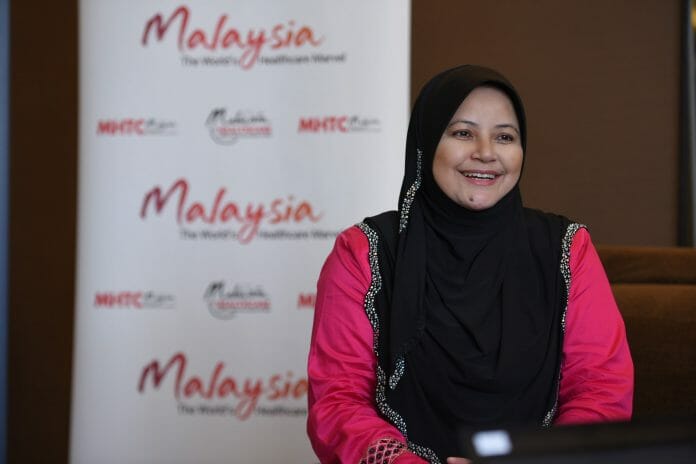The Malaysia Healthcare’s 5th instalment of insigHT2020 hopes to foster global collaboration for growth in healthcare.
“In Malaysia, we have seen how collaboration between various sectors can lead to fruitful results during the peak of the pandemic when both public and private sectors worked hand-in-hand toward a unified goal of public safety. With insigHT2020, we wanted to replicate that model of active partnerships at the global level, with Malaysia leading that conversation,” Sherene Azli, Chief Executive Officer of the Malaysia Healthcare Travel Council (MHTC) said in her opening remarks.
Praising Malaysia as the location with the top most volume of medical travellers, the country was on track of achieving its RM2 billion target this year, only to have been disrupted by the pandemic.
“We have been growing consistently achieving a compounded annual growth of 16% between 2015 and 2019. Despite the unprecedented times, we have to remain resilient and work towards a healthy rebound,” she said.
MHTC has also reaffirmed their commitment towards ensuring the continuity of care after providing healthcare services to 1.3 million patients that came to Malaysia last year.
Sherene has also urged the industry to embrace digitalisation, pointing out that its no longer a choice but to expediate the process and capturing the opportunity. “When the full rebound happens, we will be their [medical tourists] first healthcare destination.”
Speaking at the fireside chat, Dr Jemilah Mahmood, Special Advisor on Public Health to Prime Minister, Malaysia has also highlighted the importance of innovation in combating the pandemic.
“I think Covid-19 has been an eye opener. No matter how good the system is, there is always room for improvement and we need to continue anticipating any curveballs and if the system can withstand the test.
When I look at Malaysia in terms of healthcare reforms, we have an ageing population and high-levels of non-communicable diseases so we need to look how we can bring in innovation and technology to tackle these issues,” she said.
“We have to start thinking how technology can play an important role in keeping you safe and how we can achieve a better integrated system,” she added, referring to the potential application of blockchain which would enable patients to access their medical reports from any health centres and at the same time, close the gaps between specialists and general practitioners.
Dr Jemilah has also highlighted the importance of innovation on data sharing and have shared that a risk calculator will be available on MySejahtera allowing users to calculate the risks of contracting the virus from certain places.
She further urged for the expansion of the private healthcare’s role in the fight against Covid-19. “ I don’t think we optimised the role of private healthcare here. With the attention on Covid-19, a lot of other health issues and cases have been delayed which would could create a latter impact on the system, she said, urging for a collaboration that could get private healthcare centers to take on cases from public healthcare institutes at a lower fee.
According to the Malaysian Medical Association, private clinics and hospitals have seen significantly lower patient traffic since March, citing the lockdown as a major factor and fear of contracting Covid-19.
It is estimated 200 clinics nationwide will close by year-end.
Quoted in Malay Mail, MMA’s President, Dr Subramaniam said private healthcare, an important component in our country’s overall healthcare system can be an added strength in managing Covid-19 but is still underutilised.
The Association also warned that a collapsing private healthcare sector could drive public spending up.
Dr Jemilah further shed light on the importance of public participation citing the need to connect with the public at grassroot levels. She said that it is important to involve community leaders as well as NGOs in upcoming health responses as it could trigger a positive change in behaviour among the public.
“People build trust with civil society organisations and communication is important in achieving that. Academicians too must be involved early on for a robust healthcare system,” she added.
Concluding her session, Dr Jemilah says we need to learn to live with the virus and while the reopening of borders may raise questions, if done with the right SOPs and innovation, we can also help other countries fight the battle along with ours.
“We must continue to change and adapt to win this,” she said.









